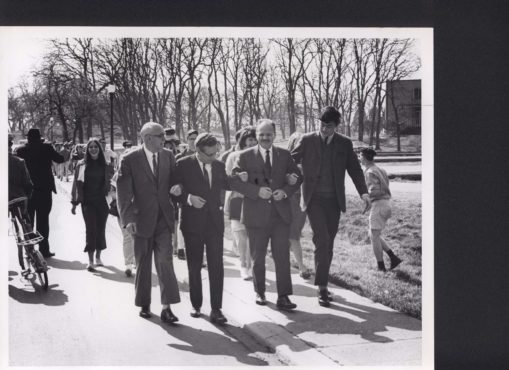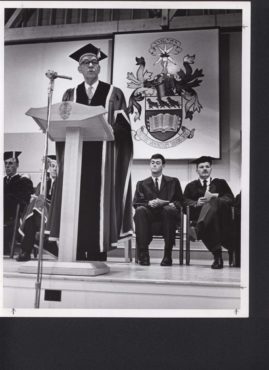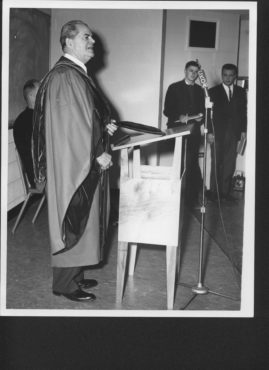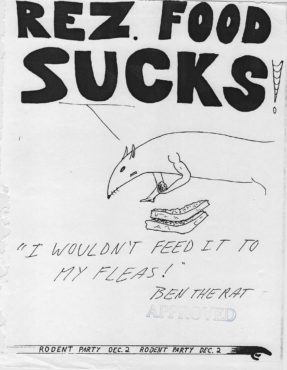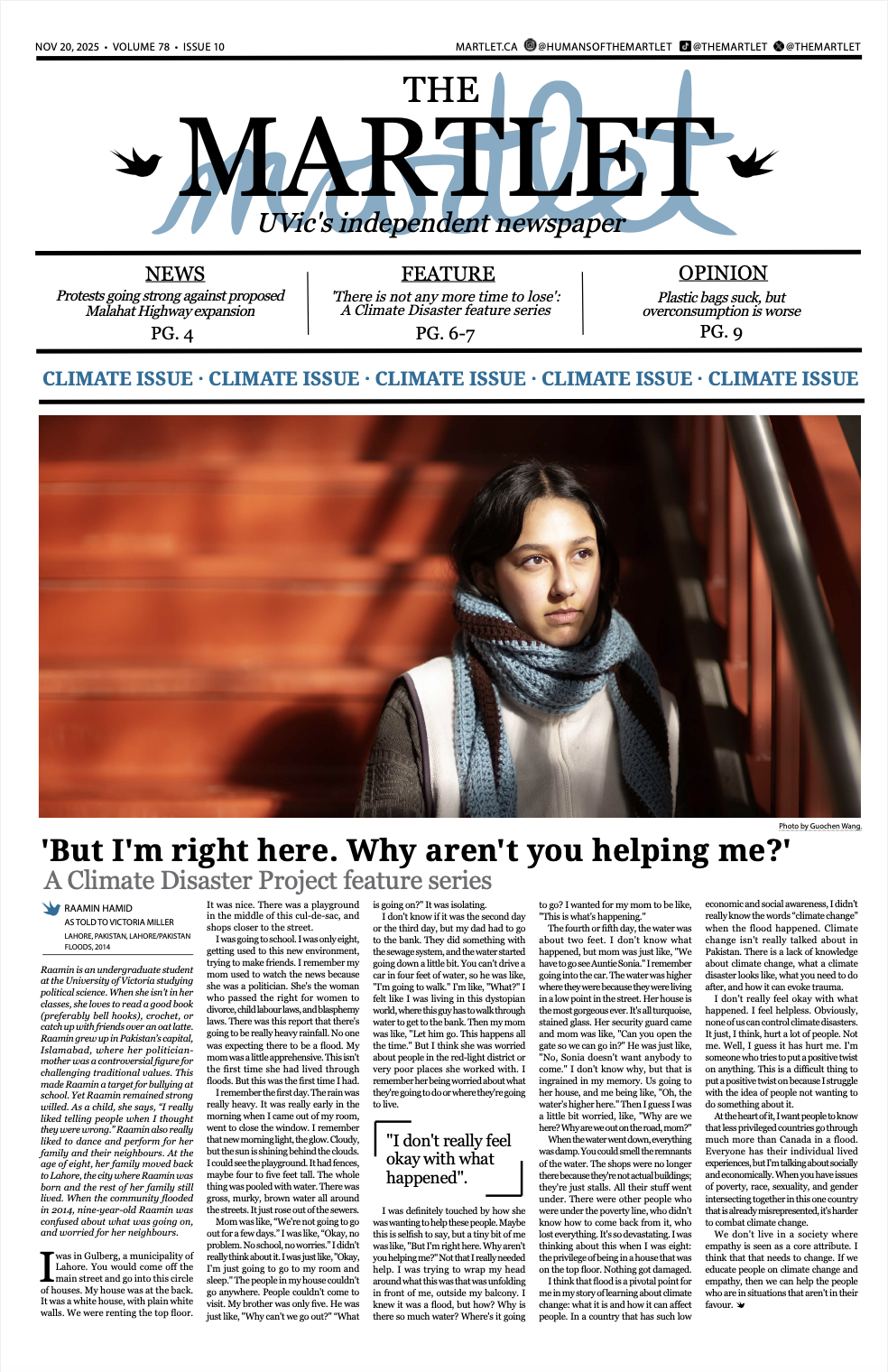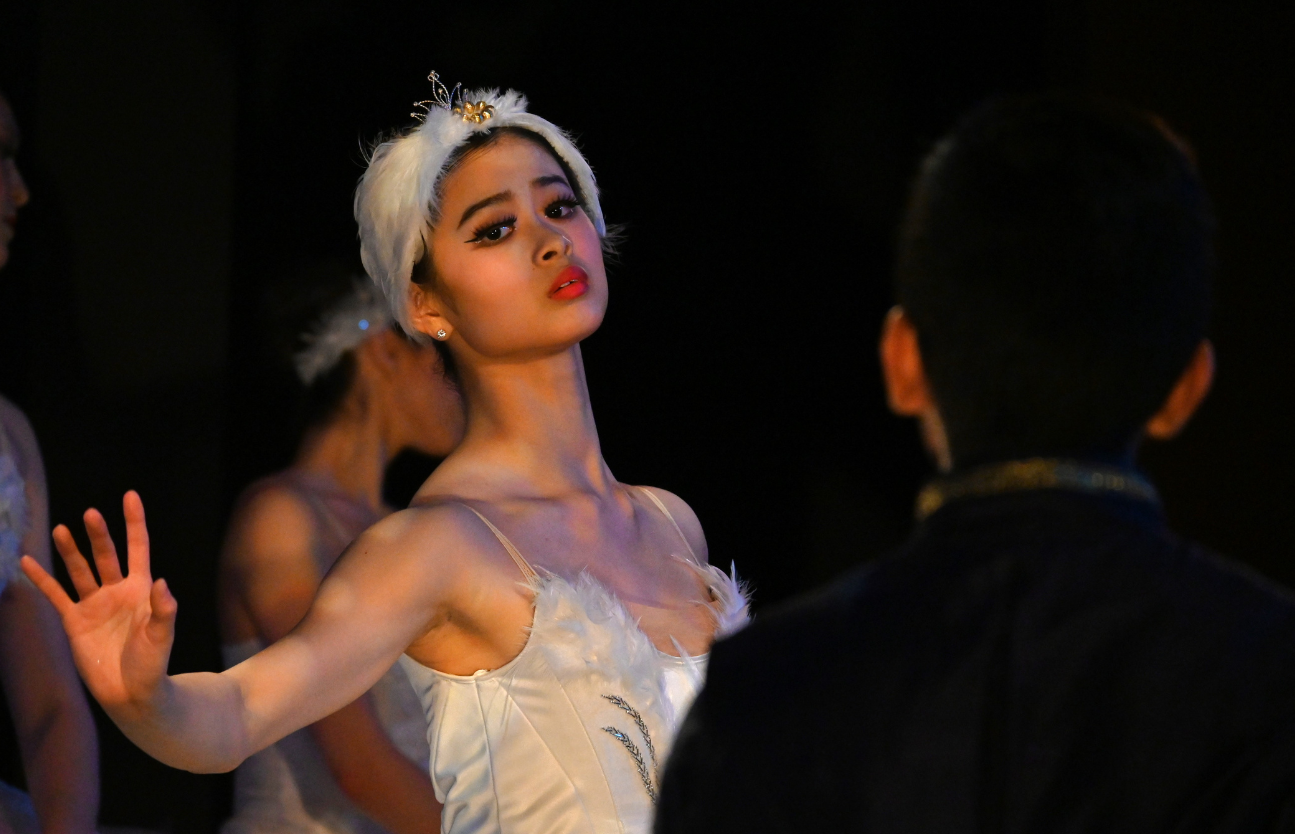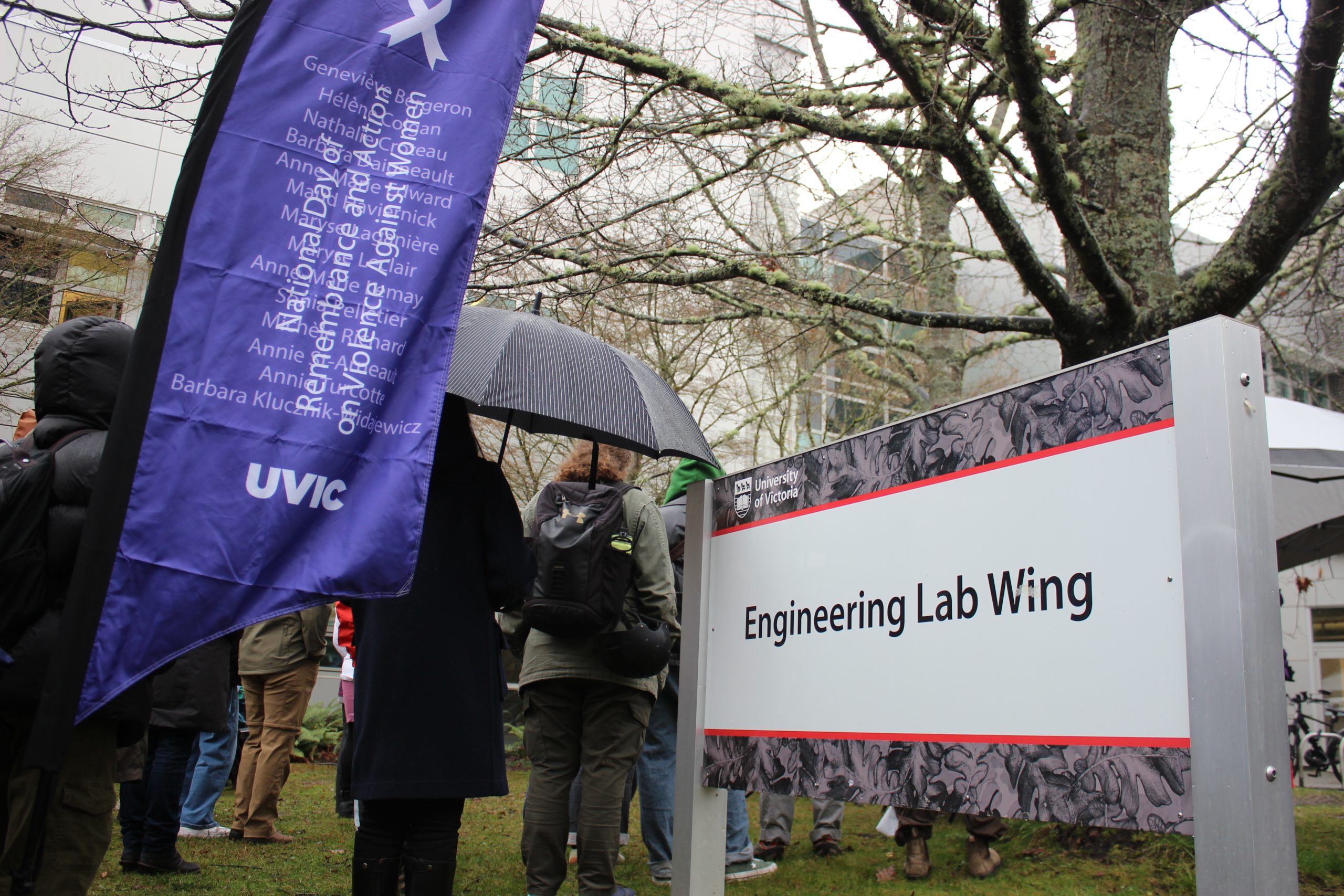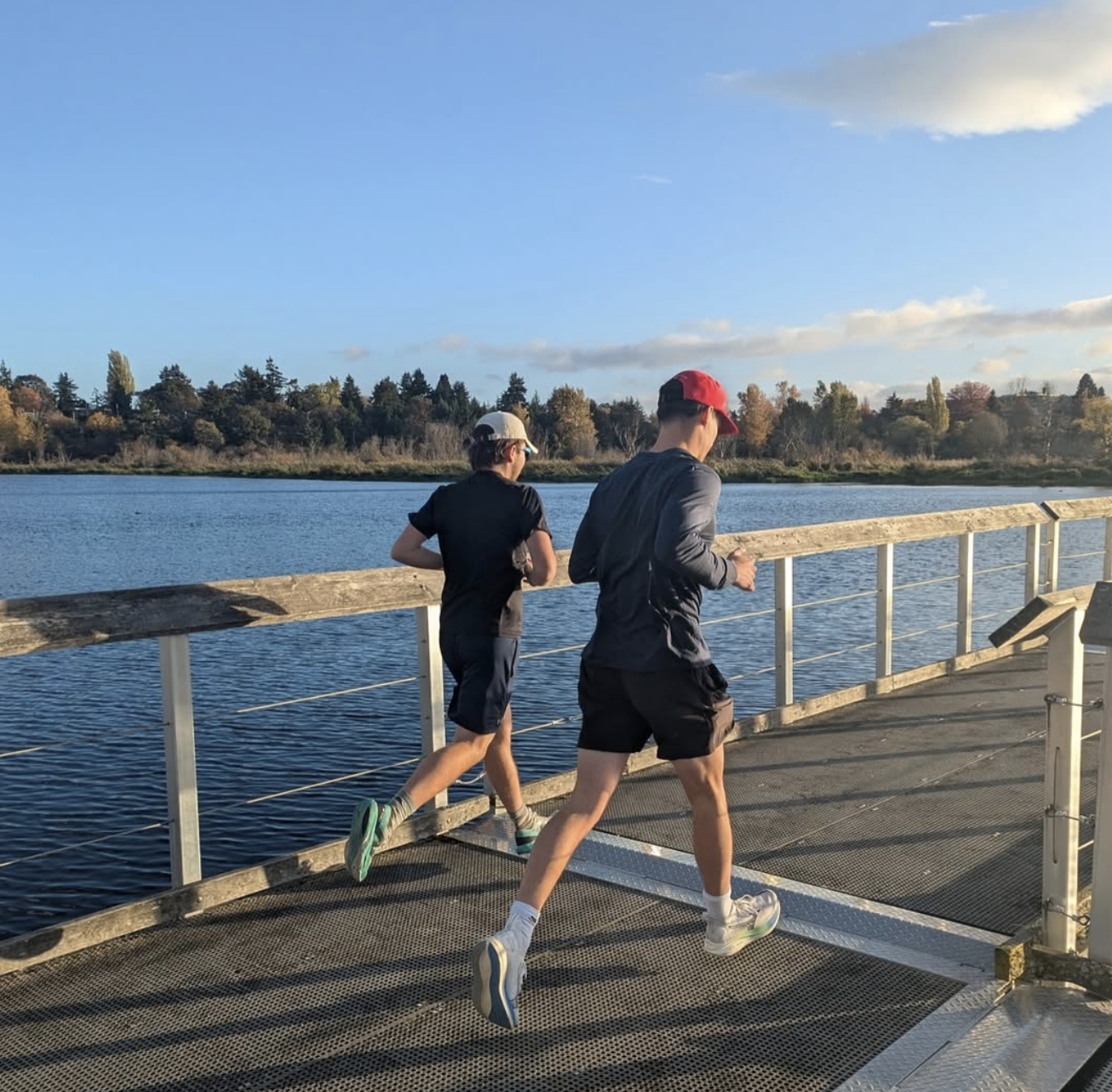Breaking down the Bigsby’s Martlet dynasty

Jim Bigsby, my granddad, would describe his UVic education as a major in the Martlet with a minor in Economics and Political Science. And while his degree certificate may only make note of a double major in Economics and Political Science, him being the Managing Editor and subsequently the Martlet’s Editor-in-Chief in the early sixties would make a fairly decent case for this alleged Masters in Martleteering.
Kathleen Bigsby, my grandmother, who while at UVic completed a degree in English and History, has never described her education as anything but that impressive double major. She has, nonetheless, spent two years writing at the Martlet and three years on the Alma Mater Society board as a first year women’s representative starting in 1963 until the year prior to her graduation in 1967.
David Bigsby, my dad, would not describe his education as being a completed Bachelor’s in history with a minor in running-in-a-student-election-using-your-pet-rat-as-a-proxy-candidate, but he did actually run in a student election using his pet rat as a proxy candidate while pursuing his degree in history. My dad started off as a volunteer, cartooning and writing for the Martlet, and eventually became the Martlet News Editor.
And then there’s me: Marshall-Scott-Bigsby, David Bigsby’s first-born disappointment.
The Bigsbys take the Martlet
“This is no university to go to for a degree only” — Stephen Bigsby
The Sentinel and The Microscope were, for a time, separate and independent student newspapers run out of Craigdarroch Castle—the location of Victoria College—starting in 1938. In 1948, when the two publications had conglomerated, a vote was taken by the students to rename the Microscope “The Martlet,” in continuity with the three little Martlets on the UVic Shield, and a reference to academic and media freedom and an annual congregation of the flock.
My grandfather began writing for the Martlet in 1962 at the Lansdowne campus — the current location of Camosun College — and served a half-year term as the Martlet editor beginning in 1963. My grandmother was a staff member of the Martlet starting in 1963, and continued writing there until 1966. My father started writing and cartooning for the Martlet in 1987, 25 years after my grandad Jim. My first article — a satire piece about hyphens — was published in October 2017, 30 years after my father’s first piece, and 55 years after my grandfather’s.
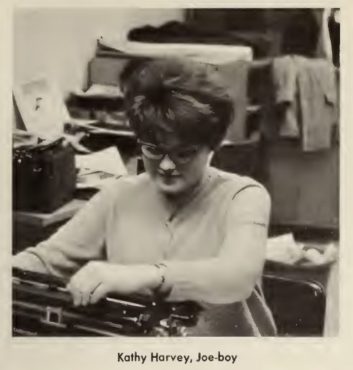
Kathy Harvey, working away in the Martlet office. 1964. Photo via UVic Archives
Having three generations of Bigsbys attending UVic may not be that much of a coincidence. My grandfather, like myself, grew up in Victoria, and his decision to attend Victoria College was one of a seemingly obvious natural progression. My Grandfather began attending Victoria College in 1961, and as he spent more and more of his time in the Quad between the Young and Ewing buildings on the College’s Lansdowne campus, he began to feel the inevitable call of the Martlet ringing in his ears.
Funnily enough, I would end up walking along the exact same route between my math class and economics class exactly 55 years later when I attended Camosun with the intent to transfer to UVic. My Grandfather began writing for the Martlet in 1962, back when it was still situated on that Lansdowne campus. As editor, he ended up overseeing the transition of the Martlet’s former location above the Campus Caf to its current residence in the SUB basement in 1963.
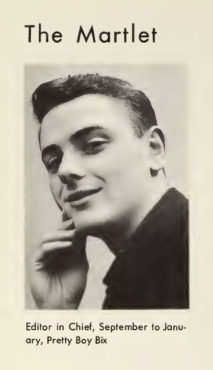
Pretty boy Bix, Martlet EiC. Photo via UVic Archives
Jim and Kathleen met one another while attending UVic, and once they had married and graduated, the two of them settled in Vancouver. Of their two children, my father decided to attend university in the same city where he had visited the parents of his father, choosing to pursue a degree in history. My father was a member of the generation that had been told that any degree — regardless of faculty — would be enough to ensure high-quality employment. Eventually, he made the decision to start writing for the university paper, and fell in love with all things reporting. As he grew more engrossed in the world of journalism and student journalism, he started to eye a professional position.
As though prophetic, his creation of “Mundane Magazine” in the annual Martlet parody issue ended up as a precursor to him working at the actual Monday Magazine. My father also met my mother through a mutual friend—UVic. She had moved from Saskatchewan to row and study, and thanks to that transition she ended up meeting my father.
But both my father and my grandfather had another love — student politics. And in the days when the Martlet was directly under the ownership of the Students’ Society (then called the Alma Mater Society), they both saw firsthand the actions of student politics and thought that they could do better.
The Bigsbys take the Students’ Society
“Because so many of our professors and instructors are atheists, nudists, Communists, alcoholics, Fascists or vegetarians, the student must take care to preserve his sacred parental upbringing” — Jim Bigsby
In the March 5, 1964, edition of the Martlet, Jim Bigsby made his run for SUB Director. His slate is concise and to the point, standing out from the others. Rife with semicolons between accomplishments and brief descriptions of what he hopes to achieve in office, the to-the-point style is in stark contrast to the prose of his competitors. Reading “enlarged food services, TV room; rent commercially during summer months; more art and club displays; continued office space for EUS and clubs; residence rep. on SUB committee; study of needed expansion;” is not what you would expect from the platform of an avid writer.
And then you see his advertisement: heavy Futura font alongside his and his competitors’ platforms reads: “The fellow whose financial policies decreased The Martlet’s AMS subsidy from $4600 to $3000 while increasing size by 170% sounds like an awfully good choice for SUB Director. Seems to be careful with your money, doesn’t he? Now who would this fellow be. Jim Bigsby. Damned good choice, actually. Best, in fact.”
Bear in mind that these were the years that print media was actually not only widely circulated, but also widely read. That means people actually read the platforms of the candidates who were to be elected to represent them, and each individual who leafed through those pages would see it and read it.
This bold move was immensely effective, and garnered him almost twice as many votes as any of his four competitors, with a 50 per cent student turnout. As a student councillor, he aided in shaping the SUB happenings and the current structure of the UVSS as we know it today. In his tenure, he did not shy away from standing up for student rights and affordability. In one particular interview, he openly criticizes Joseph Clearihue, then-chancellor of the university, for a proposed promissory note fee structure and for university students.
A year earlier, in 1963, my grandmother was appointed the First Year Womens’ Representative on the AMS board. She continued to represent students for the next three years, until in 1967 she served her last term as the AMS Secretary. From what can be salvaged from the Martlet archives, my Nana — who while at university went by Kathy — fought for student rights and funding for extracurricular activities that made UVic the university it is today.
In 1965, Jim’s brother, Stephen Bigsby, ran for student council as the Director of the Clubs Council and won. The next year he ran again for the presidential seat, and won with more than the combined votes of each of his competitors.
My father had a different approach. In the ’87 by-by-election to replace the AMS President, my father made the decision to throw his hat into the ring — and his rat into the race.
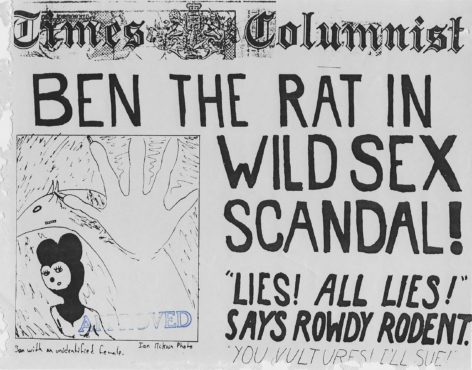
A Times Colonist parody (The Times Columnist) featuring Ben the Rat. Photo via David Bigsby
Promising equality for all, rats and students alike, Ben struck a chord, and came in second place out of five candidates in total. Perhaps in another world, Ben would have walked away with the presidency, but unfortunately for him* the by-election was dismissed by the elections committee, and another spring election was called. Ben may not have won the second time around, but the rights for rodents that he* fought to be recognized have forever changed the landscape for vermin politics.
*My father was a little hasty in his adoption of Ben, and since he was a student of history and not biology, he neglected to check the sex of his rat (beginner’s mistake). As what was reported in the Times Colonist that year, a helpful student corrected David on his assumption.
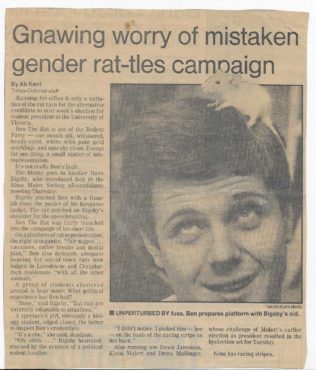
An actual Times Colonist article about the misgendering of Ben the Rat. Photo via David Bigsby
When my father came back to UVic in the late ’90s to complete his degree in healthcare economics, he ran in the election once more — this time, as himself. And, finally, he won.
The Bigsbys write the Martlet
“Campus life is a mosaic of questioning and study, pranks and responsibility, group activity and leisure of solitude. And such should all life be. To regret the passing of ‘the good old days’ is to admit that something precious has been allowed to slip away” — Jim Bigsby
A lot has changed since my grandfather and father wrote and edited at the Martlet.
Now, I write all my stories on Google Docs and share them with Melissa and/or Cormac, who sends it to editors, and then on to a service called International Web Express in Vancouver, after my main man Austin formats the issue in Adobe InDesign. Web Express prints out a few thousand copies on whatever colour paper we ask for, and they send it back to us.
We distribute the Martlet on-campus and off-campus and berate our friends to read our articles. A few days after our publication date, we circulate the story on the Martlet website and share it on Facebook shortly afterward. Almost everything relating to our publication is done over the internet or at the very least, over a computer.
For Jim and David, publishing was a slightly more drawn-out process.
My grandfather would write up his stories either from pen or typewriter to paper. He would then have the piece ruthlessly fact-checked and edited for clarity, grammar, and newspress style. Now, this is not actually very different from the copy editing process that has always befallen the articles of unsuspecting Martlet volunteers. All three procedures end in a pile of approved and rigorously edited pages, prepped to be sent off to the presses.
The presses, in the early ’60s, were those of The Colonist. A Martlet staff member would be sent off with the pile of photos and proofread documents to have the words set into lead slugs. An operator would—by hand—justify and adequately format every word and sentence that was to be printed, and have one big flatbed to press onto the paper to produce the Martlet.
My dad would begin by typing his articles out on a typewriter. He would find himself and Martlet staff looking over thick sheets of cardboard in the Graphix Shop — a branch of ZAP Copy — melting wax to stick clippings to the cardboard flats, and using an optical typesetter to format each individual column and article. Those flats would be driven to Black Press by a Martlet staff member, and after they had been processed, copies of the Martlet published in the late ’80s would find themselves being printed on the same machines as Monday Magazine and Victoria News.
It was only a few years later that such advancements were made that articles would be typed up on a 386 (I am not too familiar with computer models, but these are probably the same ones we use in the Martlet office today), and taken to the Graphix shop, and sent to Black Press once more.
But throughout Martlet history, one powerful attribute has remained completely unchanged. Just like when my grandfather had his words cast into metal, or when my father glued his news pieces with hot wax onto flats, or as I type these words now into my ASUS laptop, or when any other person whose name has graced the pages of the Martlet sits down to write an article, one single thing has remained constant. With cardinal composition of ink, paper, and the tireless effort of a writer, one creates a publication.
And that is what makes the Martlet so special. It’s why three generations of my family have written for it, and it’s why I encourage virtually every person I encounter to consider writing for us. Because although you could just buy an inkjet printer and distribute your own independent newspaper called Bob’s Thoughts on campus, the sense of chisling a coherent article out of the marble block that is your mind is a feeling of elation.
The feeling of accomplishment, the symbol of your progression and your development as a writer and a public figure is impossible to replicate. And that feeling is why people decide to write in the first place.
This article has been edited to better reflect the progression of student elections in 1963 and 1987.
- “The Trek,” the walk from the Landsdowne campus to the current campus. Led by President Taylor, Chancellor Clearihue, Registrar Jeffels, and AMS President Bigbsy. 1966. Photo via UVic Archives
- Steve Bigbsy sits behind Dr. Clearihue at the fifth Academic Assembly, Clearihue’s last public appearance as Chancellor. 1966. Photo via UVic Archives
- Opening of the Clearihue building, 1963. Jim Bigsby reporting. Photo via UVic Archives
- A fake poster for Ben the Rat’s students’ society run. Photo via David Bigsby



